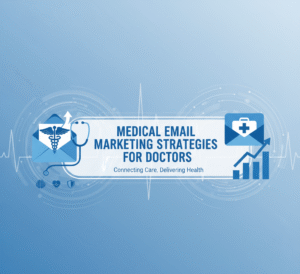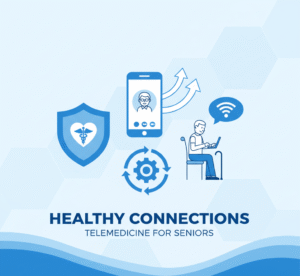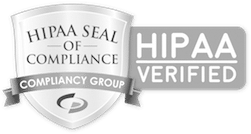“Attract and build trust with new patients using content marketing for psychologists that educates, destigmatizes, and addresses sensitive topics with empathy and ethical authority.”
The Digital Frontier for Mental Health Professionals
A strong online presence is non-negotiable for almost any profession in today’s interconnected world. This digital frontier presents immense opportunities and unique challenges for psychologists, therapists, and mental health practitioners. You want to reach those who need your help, but must do so with tremendous care and unwavering ethical standards. This isn’t just about getting noticed. It’s about building profound trust, long before a patient enters your office.
Content marketing for psychologists isn’t like selling shoes or software. You’re dealing with people’s most vulnerable moments, deepest fears, and hopes for a better life. Therefore, your content must be a beacon of authority, empathy, and ethical soundness. It needs to educate, destigmatize, and reassure. Most importantly, it must establish you as a trustworthy expert and a compassionate guide. This guide will show you how to do just that.
Why Content Marketing is Different for Mental Health Professionals
Let’s face it. Traditional advertising often feels impersonal. A different approach is necessary for a field as personal as mental health. Content marketing, when done right, offers that approach. It allows you to showcase your expertise, share valuable insights, and connect with potential patients on a deeper level.
However, the stakes are incredibly high. Misinformation can be harmful. Insensitive language can deter someone from seeking help. Breaching confidentiality, even inadvertently, can damage your reputation and professional standing. So, while the goal is to attract new patients, the overriding principle must always be “not harm.”
Building Trust: The Cornerstone of Your Content Strategy
Trust isn’t just a nice-to-have; it’s the foundation of any successful therapeutic relationship. In the digital realm, this trust starts with your content. How do you build it?
First, be authentic. Your voice should reflect your professional persona – knowledgeable yet approachable. Second, be transparent. Clearly state your qualifications and your therapeutic approach. Third, be consistent. Regular, high-quality content signals reliability.
This trust-first approach isn’t just about ethics. It’s also a highly effective marketing strategy. When people trust you, they are more likely to engage with your content, share it with others, and ultimately, reach out for help. They see you as a credible source of information and a potential partner in their journey toward mental well-being.
Demystifying Mental Health: Destigmatization Through Education
One of the biggest hurdles in mental health care is stigma. Many people hesitate to seek help due to shame, fear of judgment, or a lack of understanding about their experiences. Your content has a decisive role to play in breaking down these barriers.
Education is your primary tool for destigmatization. When you write clear, accessible articles about mental health conditions, you pull back the curtain of misunderstanding. You replace myths with facts, and fear with knowledge.
For example, explain complex psychological concepts in plain language instead of clinical jargon. Describe symptoms in a way that people can recognize in themselves or loved ones, validating their experiences. Discuss common misconceptions directly, offering informed perspectives.
Consider an article explaining anxiety. You could describe what anxiety feels like, why it happens, and different ways it manifests. You would then discuss effective coping strategies and treatment options. This kind of content doesn’t just inform; it normalizes. It tells someone struggling, “You’re not alone, and help is available.”
Crafting Authoritative Content: Showcasing Your Expertise
Your content must demonstrate your authority as a psychologist. This means more than just listing your credentials. It means consistently providing accurate, evidence-based information.
When discussing research, cite reputable sources. Explain psychological theories clearly, showing your deep understanding. Share insights from your experience, constantly maintaining patient confidentiality.
For instance, don’t just say it works if you’re writing about cognitive-behavioral therapy (CBT). Explain how it works. Describe the core principles, give examples of techniques, and discuss the conditions it effectively treats. This level of detail positions you as a true expert who knows the facts and their practical application.
Your authority also comes from your perspective. You bring years of education, training, and clinical experience. Use this to offer nuanced insights that a general health blog simply cannot provide. This depth of knowledge is what truly differentiates your content.
Empathy in Every Word: Connecting with Your Audience
While authority is crucial, it must be balanced with empathy. People seeking mental health support are often in distress. Your words need to convey understanding, compassion, and a non-judgmental stance.
Think about the language you use. Avoid overly clinical or detached tones. Instead, aim for a supportive and understanding voice. Acknowledge the difficulties your readers might be facing. Validate their feelings.
For example, when writing about depression, you might include phrases like “It’s understandable to feel overwhelmed,” or “Many people experience similar struggles.” These small touches make a big difference in creating a welcoming and safe space for readers.
Empathy also means addressing common fears and concerns head-on. Potential patients often worry about the cost of therapy, the time commitment, or whether treatment “really works.” Your content can preemptively and reassuringly address these concerns, guiding them gently toward understanding the value of seeking help.
Addressing Common Patient Questions: Your Content as a Resource
One of the most effective content marketing strategies is directly answering potential patients’ questions. Consider the common initial hesitations or curiosities people have about therapy or specific mental health conditions.
What are the signs of anxiety? How do I know if I need therapy? What happens during a first therapy session? Is online therapy effective? These are goldmines for content ideas. Each question can become a blog post, a video, or an FAQ section.
By answering these questions comprehensively and clearly, you become an invaluable resource. You’re not just marketing your services but helping people navigate complex information. This reinforces your authority and builds trust. It shows that you understand their needs and are willing to provide helpful guidance, even before they commit to becoming patients.
Furthermore, answering these common questions helps with search engine optimization (SEO). When people type these questions into Google, your articles are more likely to appear, drawing them to your practice.
Ethical Boundaries: Respecting Professional Standards
As a psychologist, ethical considerations are paramount. Your content marketing must always adhere to professional guidelines. This means maintaining confidentiality, avoiding dual relationships, and not making guarantees about treatment outcomes.
When sharing anecdotes or case studies, always anonymize them thoroughly. Change details so that no individual can be identified. If you’re drawing from your clinical experience, speak generally about patterns or common challenges, rather than specific patient narratives.
Also, be cautious about offering diagnoses or specific treatment advice in your public content. Your blog posts should provide general information and education, not a substitute for a personalized consultation. Clearly state disclaimers that your content is for informational purposes only and does not constitute therapeutic advice.
Your content should inform but not diagnose or prescribe. It should invite further inquiry and professional consultation. This distinction is vital for maintaining ethical boundaries and professional integrity.
Navigating Sensitive Topics: A Framework for Responsible Writing
Writing about sensitive topics requires particular skill and a careful approach. Here’s a framework:
- Define the Scope: Clearly state what your article will and won’t cover. For example, if you’re discussing trauma, you might focus on coping mechanisms rather than graphic details.
- Use Respectful Language: Avoid judgmental, stigmatizing, or sensational language. Stick to person-first language (e.g., “a person with depression” instead of “a depressive”). Be mindful of cultural sensitivities.
- Provide Context and Nuance: Mental health is rarely black and white. Acknowledge complexities. Explain that experiences can vary significantly from person to person. Avoid generalizations.
- Offer Hope and Solutions: Always aim to provide hope while acknowledging struggles. Discuss effective treatments, coping strategies, and paths to recovery. Focus on empowerment.
- Include Disclaimers and Resources: Reiterate that your content is informational. Always include a call to action to seek professional help. Provide links to reputable mental health organizations or crisis hotlines.
- Review, Review, Review: Have a colleague or trusted professional review your content before publication, especially for highly sensitive topics. A fresh pair of eyes can catch unintentional missteps.
For example, when writing about suicide prevention, you would avoid graphic descriptions. Instead, you’d focus on warning signs, how to talk to someone you’re concerned about, and resources for immediate help. The tone would be serious but compassionate, emphasizing support and intervention.
SEO for Therapists: Getting Found by Those Who Need You Most
You can write the most authoritative, empathetic content in the world, but it won’t help anyone if it isn’t found. That’s where Search Engine Optimization (SEO) comes in. SEO is optimizing your website and content to rank higher in search engine results.
For psychologists, SEO is about connecting your expert content with the precise individuals searching for help. Think about what your ideal patient might type into Google.
Keywords are crucial. Your target keyword, “Content Marketing for Psychologists,” and other keywords like “content marketing for therapists,” “psychology blog topics,” “mental health marketing,” “building trust with patients,” “SEO for therapists,” “private practice marketing,” “writing about sensitive topics,” “patient education for mental health,” “ethical marketing for psychologists,” and “how to get therapy clients,” are all central to your strategy.
Integrate these keywords naturally throughout your content. Use them in your article title, headings, and body paragraphs. But never stuff keywords unnaturally. Google is smart; it prioritizes content that provides real value to users.
Beyond keywords, consider:
- Mobile-friendliness: Most people access the Internet on their phones, so your site must look and function well on mobile devices.
- Page speed: A slow website frustrates users and hurts your rankings.
- Internal linking: Link to other relevant articles on your own site. This helps users discover more of your content and signals to search engines that your site is a rich resource.
- Backlinks: When other reputable websites link to your content, it tells search engines that your site is trustworthy and authoritative. This is a powerful SEO signal.
- Local SEO: Local SEO is vital for private practices. Make sure your Google My Business profile is complete and accurate. Encourage patient reviews (ethically, of course).
- Schema Markup: This is a type of code you add to your website that helps search engines better understand your content, like your services, location, and practitioner details.
SEO isn’t a one-time task; it’s an ongoing process. Regular content updates and technical maintenance are essential for long-term success.
Crafting a Content Calendar: Consistency is Key
. A sporadic blog post won’t build an audience or an online presence. Consistency is key. Develop a content calendar. Plan out your topics in advance.
Think about different categories of content:
- Educational pieces: Explaining conditions, treatments, or psychological concepts.
- Q&A posts: Directly answering common patient questions.
- Resource guides: Curated lists of books, apps, or support groups.
- Myth-busting articles: Addressing common misconceptions about mental health.
- Seasonal content: Articles relevant to holidays, back-to-school, or other specific times of year (e.g., “Coping with Holiday Stress”).
A well-planned content calendar ensures a steady stream of fresh, relevant content, which keeps your audience engaged and signals to search engines that your site is active and current.
Measuring Success: What to Track
How do you know if your content marketing efforts are working? You need to track key metrics.
- Website Traffic: Are more people visiting your site?
- Time on Page: Are people spending time reading your articles, or are they bouncing quickly? A longer time on the page often indicates engagement.
- Bounce Rate: A high bounce rate means people leave your site after viewing only one page, while a lower bounce rate suggests they are exploring more of your content.
- Search Rankings: Are your articles higher in search results for your target keywords?
- Inquiries/Contact Forms: Are you receiving more calls or contact form submissions directly related to your content?
- Social Shares: Are people sharing your articles on social media? This indicates your content resonates.
Tools like Google Analytics can provide detailed insights into your website’s performance. Regularly analyzing these metrics allows you to refine your strategy, focus on what works, and improve underperforming areas.
Beyond the Blog: Expanding Your Digital Footprint
While blog posts are central, content marketing can take many forms:
- Videos: Short, educational videos can be highly engaging, especially on platforms like YouTube or Instagram. You could explain a concept in under a minute or offer a quick coping tip.
- Podcasts: A podcast can be an excellent way to share your expertise and personality for longer-form discussions.
- Infographics: Visual representations of data or complex concepts can be very shareable.
- Email Newsletters: Build an email list and send regular newsletters with your latest content, practice updates, and curated resources. This helps maintain a direct connection with your audience.
- Social Media: Share snippets of your blog posts, ask questions, and engage with your community on platforms like Facebook, Instagram, or LinkedIn. Remember to maintain professional boundaries.
Each channel allows you to reach different audience segments and reinforce your message of authority and empathy.
Ethical Marketing for Psychologists: A Summary of Best Practices
To reiterate, ethical marketing is not optional for psychologists; it is fundamental.
- Transparency: Clearly state your credentials, fees, and therapeutic approach.
- Confidentiality: Never share patient information, even anonymized, if there’s any risk of identification.
- Accuracy: All information you present must be scientifically accurate and evidence-based.
- No Guarantees: Avoid making promises or guarantees about treatment outcomes.
- Boundaries: Maintain clear professional boundaries. Your content should educate and inform, not serve as a substitute for therapy.
- Informed Consent: If you ever feature a patient’s story (with their explicit, written consent), ensure they are fully informed about how their story will be used. This is generally not recommended for public content.
- Respect for Dignity: Always treat individuals with mental health conditions with respect and dignity, avoiding stigmatizing language.
- Disclaimers: Include clear disclaimers that your content is for educational purposes only and not a substitute for professional mental health care.
Adhering to these principles protects your patients, practice, and professional reputation.
The Power of Professional Partnership: InvigoMedia’s Approach
Developing and executing a comprehensive, practical, and ethically sound content marketing strategy is significant. It requires time, specialized knowledge, and a deep understanding of the unique landscape of mental health care. This is where a professional partner becomes invaluable.
InvigoMedia possesses a nuanced understanding of sensitive healthcare verticals, especially mental health. We recognize that marketing for psychologists demands a distinct approach—one that prioritizes trust, empathy, and ethical integrity above all else.
Our Content Marketing and SEO services are specifically designed to help psychologists build a robust digital presence that ranks well in search engines and, more importantly, fosters the profound trust necessary for a patient to take that courageous first step in seeking help.
We work with you to develop content strategies that:
- They are ethically sound: We ensure all content aligns with professional guidelines and best practices.
- Are authoritative and empathetic: Our writers understand how to convey your expertise with a compassionate, human touch.
- Address patient needs: We research common questions and concerns to create highly relevant and helpful content.
- We are optimized for search engines: We implement advanced SEO techniques to ensure your valuable content reaches the right audience.
- Build long-term trust: Our focus is creating content that establishes you as a reliable, understanding, and expert resource.
You dedicate your life to helping others navigate their mental health journeys. Let us help you navigate the complexities of the digital world, connecting you with those who need your specialized care. With InvigoMedia, you gain a partner committed to building a digital presence that reflects your professional values and clinical excellence. We create the foundation of trust online, empowering you to make a real difference in people’s lives.
FAQs: Content Marketing for Psychologists
Q: Is content marketing essential for my psychology practice?
A: Yes, absolutely. Most people today search for a therapist or mental health information online. Content marketing allows you to be found by those individuals. It establishes your authority and builds trust before a potential patient contacts you. It’s a powerful way to educate and destigmatize mental health conditions.
Q: How often should I publish new content?
A: Consistency is more important than frequency. A good starting point is one high-quality, in-depth blog post per month. Suppose you can manage two, even better. The key is to maintain a regular schedule so your audience knows when to expect new content and search engines see your site as active.
Q: What topics are safe to write about without breaching ethical boundaries?
A: Focus on general educational topics. Explain mental health conditions (e.g., “Understanding Anxiety Attacks,” “Signs of Depression”). Discuss common therapeutic approaches (e.g., “What is CBT and How Does It Work?”). Offer general coping strategies (e.g., “Mindfulness Techniques for Stress”). Address common myths about therapy. Always focus on general information and avoid specific patient anecdotes or giving direct medical advice.
Q: Should I allow comments on my blog posts?
A: This is a tricky one for mental health professionals. While comments can foster engagement, they also pose risks. You might receive comments seeking personal advice, making inappropriate statements, or even sharing personal details that could compromise their privacy. Disabling comments or heavily moderating them (which requires significant time) is often safer for most psychologists. A better approach for engagement might be to direct readers to your social media channels for general discussion.
Q: How do I handle negative feedback or comments if I allow them?
A: Respond professionally and ethically if you allow comments and receive negative feedback or inappropriate questions. Do not engage in a debate or offer specific advice. You might respond with a statement like, “Thank you for your comment. Please remember that this blog provides general educational information and is not a substitute for personalized professional consultation. If you are struggling, please seek individual support from a qualified mental health professional.” You should also have a policy to remove careless, offensive, or violent information. comments
Q: Can I use patient testimonials in my marketing?
A: The American Psychological Association (APA) and other professional bodies have strict guidelines regarding testimonials. Generally, it is best to avoid using direct patient testimonials for marketing due to ethical concerns about confidentiality, exploitation, and the difficulty of substantiating claims. Focus instead on showcasing your expertise through educational content and your professional credentials.
Q: Is it okay to talk about my own experiences with mental health in my content?
A: This is a personal and professional decision. Some psychologists choose to share limited, carefully considered personal experiences to build rapport and destigmatize mental health. However, you must maintain clear professional boundaries. Ensure your sharing is purposeful, brief, and doesn’t shift the focus from your expertise to your personal life. It should always serve an educational or empathetic purpose, not be self-disclosure for its own sake. Many prefer to maintain a purely professional stance in their public content.
Q: How can I ensure my content is accessible to a diverse audience?
A: Use clear, simple language, avoiding jargon where possible. Include alt-text for images and video transcripts to aid those with visual or hearing impairments. Consider cultural sensitivity in your examples and discussions. Avoid making assumptions about your readers’ backgrounds or experiences. Provide content in various formats (text, video, audio) if available.
Q: What are the biggest mistakes psychologists make with content marketing?
A: Common mistakes include:
- Inconsistency: Publishing sporadically or then stopping altogether.
- Lack of SEO focus: Creating great content but not optimizing it to be found.
- Breaching ethical boundaries: Sharing too much personal information, making guarantees, or discussing specific patient cases.
- Overly academic language: Using jargon that alienates potential patients.
- Focusing only on self-promotion: Not providing genuine value and education to the reader.
- Ignoring disclaimers: Failing to state that content is for informational purposes only.
Q: Can content marketing truly lead to more patients?
A: Absolutely. When done correctly, content marketing positions you as a trusted expert and a compassionate resource. People seeking mental health support often do extensive research before reaching out. Your high-quality, ethical content provides valuable information, builds rapport, and helps them feel confident contacting your practice. It’s a long-term strategy, but it yields sustainable results.













